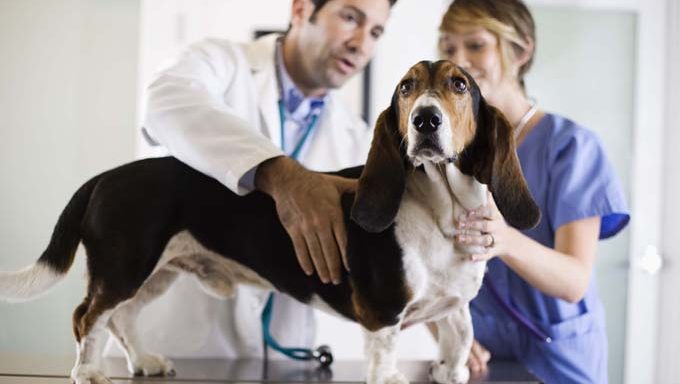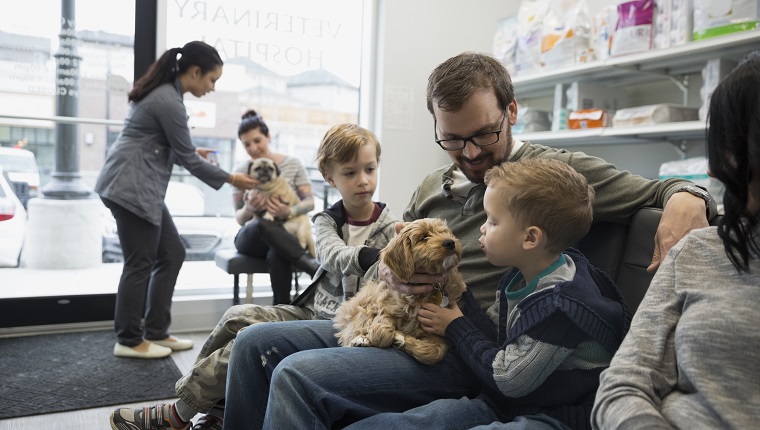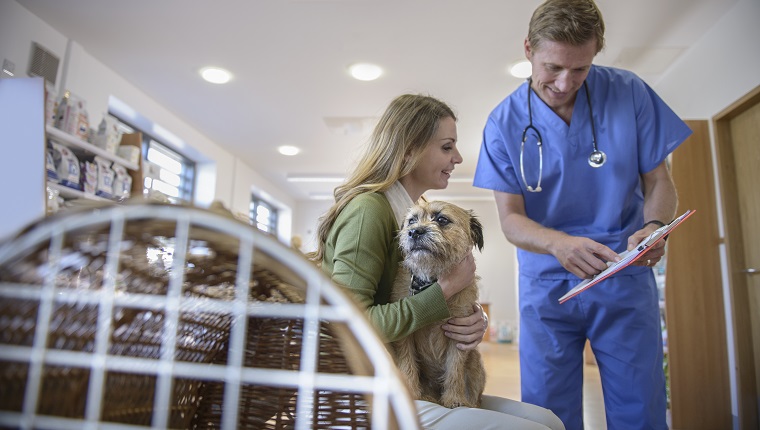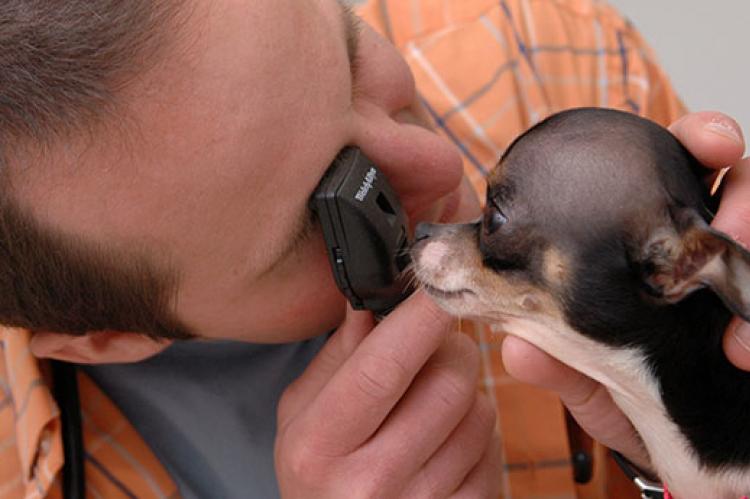Steps To Take When Choosing A Good Vet
Whether you’re a new pet owner or have owned several pets for years, it’s a good idea to select a veterinarian before you actually need one. This way, you’ll be working with someone who you feel comfortable with and seems to have a good rapport with your pet rather than a vet who is simply nearby, open, or listed first in the Yellow Pages.
Check Out The Website
Look at each veterinarian’s website for a glimpse of the vet’s personality, staff, and capacity. While someone can be an excellent vet and still have a less-than-impressive website, it’s still a quick way to narrow down a long list.
Ask For Recommendations
There are plenty of resources you can use to get recommendations for a vet. Many animal-centered organizations, like pet shelters, boarding businesses, and grooming salons, as well as other pet owners, will generally be happy to provide you with the name of the vet they know and trust
Understand How The Clinic Operates
Vet clinics can be run using a range of business methods, and you want to find the one that best suits your needs. Call the clinic and speak to the office manager or similar authority figure. Ask questions about hours, overnight care practices, billing details, and any other services associated with the clinic.
Meet With Each Vet
Once you have a short list of possible veterinarians for your dog, make appointments to meet with each vet. Schedule some time to talk with the vets without your pet. Ask a series of questions about important topics, such as their training, whether they participate in continuing education, their approach to treating pets, and the variety of services their vet clinic provides

How to Find a Good Vet
Concern for the animal
A friend of mine in Chicago told me that she chose her vet because he always greeted her dog first when she went to his office. Simple though that is, it meant a lot to her that he did that. But don’t be taken in simply by a good bedside manner if your instincts tell you that something is not right. Will your vet’s advice always center on the well-being of the animal?
Willingness to listen, to answer questions, and to communicate easily
As someone who is new to taking care of a pet, you want to feel able to ask your vet anything and have her give you just the right amount of information to help you do your job.
Kindness and patience
If you are a new mom or dad to an animal, you are going to need to know the basics. Your vet should be able to walk you through these without making you feel like an idiot.
Professional skills
Does your vet keep up with the latest developments in the veterinary field that will help your animal?
Generous nature
Are you just a money machine for your vet’s office? You want to feel as if they are taking into account your costs, especially if you are in rescue work and are bringing in a lot of animals.

Tips for Choosing the Right Vet for Your Pet
When it comes to choosing a vet for your pet, it’s important to choose a veterinarian you can trust, and who you feel you would have a connection with. They’ll be responsible taking care of your best friend’s medical needs to ensure they live a long, happy and healthy life, especially when it comes to emergency care. It makes sense that you take the time to research the vets in your area to find the one that best works for you and your needs.
Establish the kind of care your pet needs
Not all vets treat every type of animal, so you’ll need a vet that deals with your pet’s species. You also need to think about the care that your pet will need. Do they need just routine care, or do they have a specialist condition that will require a different level of care?
Establish the vet’s accreditation and experience
Before you consider any veterinarian practice, check that they’re accredited by the Accreditation Program for Australian Veterinarians (APAV). You may also want to check out the qualifications held by the vet, and the veterinary assistants and nurses. The length of time the staff stay with the practice should give you an indication of the general working environment within the clinic itself.
How attentive are the staff to your pet?
The level of attention a vet gives to both you and your pet is a crucial factor for finding a great vet. If they are not attentive enough, it’s possible that they may miss vital clues of potentially more serious conditions. Take notice of how the vet and the practice staff interact with animals. Do they show a genuine love and concern for animals? How much time are they prepared to spend with your pet assessing any issues. You’ll be able to judge this from their body language and the way they treat the animals that come into their surgery.
How attentive are the staff to you?
While it’s important to ensure that your pet is getting the right level of attention from the vet, you also need to feel that they’re able to communicate easily with you. A good relationship with your vet relies on communication, shared values, and the feeling that you can ask questions when you don’t quite understand what is going on. You need to feel that your vet will listen to your concerns, and give you confidence in the way they diagnose and treat your pet.

How To Choose The Right Veterinarian For Your Pet
Choosing the right veterinarian for your dog is something that you should carefully consider. This is the person that could potentially save your pet’s life and keep them healthy. Both and your pet should come to a consensus about this person before you make a long-term commitment to work with them. Here are some things to consider when choosing a veterinarian.
Ask for personal recommendations
One of the best ways to find the right veterinarian is to ask your friends and family members for recommendations. Other families with pets in your area may know some good veterinarians to check out, so that should be the first place you look for advice.
Find a veterinarian with an expertise in treating dogs
Veterinarians are not all created equal. There are different types of veterinarians that specialize in working with different types of animals, and some of them may have more experience treating cats, rabbits, or other types of non-canine animals. You will definitely want to work with a veterinarian who has an expertise in treating dogs specifically, so ask about how much experience they have with dogs before you get started.
Look for licensed personnel
Although most people would assume this would be a given, that is not always the case. Make sure that veterinarian really is licensed in your state and also see if some of the other workers are licensed, because there are also registered veterinary technicians. You can ask to see their licenses or contact your state board of veterinary medicine for more information
Inquire about their approach to pets and medicine
A veterinarian is not just there to administer medication, but to provide care for the entire being. Vets tend to have different approaches when it comes to pets and medication. Have a brief discussion with your potential vet and see what they think about wellness and prevention issues when it comes to dogs. If they are not on the same page with you, then you should keep looking

How to Choose a Vet
If you are thinking of getting a pet, or already have one, then it is essential to register with a vet. You should do this while the pet is healthy, because it can take time to find the right vet for you and your animal. Don’t wait until the animal is sick to start looking around. When it comes to choosing a vet you need to balance several factors, including convenience, cost, expert knowledge, and compatibility
Keep your type of pet in mind
Not all vets will treat all species. Make sure the vet has experience with your species of pet. For instance, even if a vet has a very good reputation as a canine vet, this is useless if you own a rabbit, because the two species are very different.
Consider practicality
There is little use in registering with a perfect practice if they are a two or three hour drive away. In an emergency situation you may not have two or three hours’ time to spare. Always consider how quickly you can get to the practice in the event of an emergency.
Decide what services you need your vet to provide
If you have a low income, then cost may be a deciding factor. If your pet has a very specific health issue then you will need a vet that has the equipment, and knowledge, to treat that issue
Make a list of veterinarians in your area
Do an internet search or look at a telephone directory, or the local press for adverts. Most clinics have websites so go to the website to get an idea of how many staff the clinic has, the facilities, specialities, and for the overall feel of the practice.